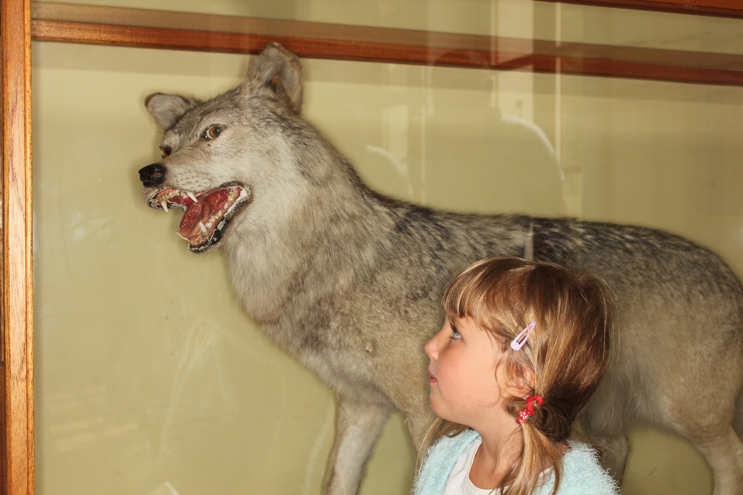 Evolution & Behaviour
Evolution & Behaviour
Wolves don’t go doggy in the Alps: two decades of genetic evidence
Potential hybridization between wolves and dogs has become a subject of high political and conservation controversy, fueled by misinformation campaigns. We performed a retrospective genetic analysis of Alpine wolves since their natural return 20 years ago, and found that their genetic integrity is not under threat.

"Most wolves are hybrids with dogs". It's along with this speculative argument that anti-wolves movements are presently building a case against one of the most emblematic predators, the grey wolf (Canis lupus), as it comes back to Western European forests such as in the Alps. As a matter of fact, it used to live there before us: the grey wolf once was the most widespread mammal on Earth, inhabiting most of the Northern Hemisphere. Aware of their potential, our Paleolithic ancestors domesticated wolves as early as the last ice age, some 30'000 years ago, creating what we all know as the dog. But dogs and wolves are no different species, their genes are fully compatible and "wolf-dogs" are viable and fertile. As such, they recurrently interbred throughout their short common evolutionary history, and can still do it nowadays, pending opportunities. While it is hardly conceivable that a wandering wolf might meet and "erroneously" breed with a chihuahua, large stray dogs wandering the countryside might be welcoming mates. And so yes, wolves and dogs can hybridize if they get the chance.
So is wolf-dog hybridization a common phenomenon? Are wolf natural populations mostly composed of hybrids with dogs? This question is a major political challenge and a source of conflict in the Alpine countries. The wolf is highly controversial due to its threat to livestock, but yet is a protected species whose hunting is strictly regulated. In contrast, wolf-dogs have no legal protection, and could thus be shot on sight. Indeed, the risk of hybridization is real. As the Alps were originally recolonized by very few individuals, dog genes could have easily spread over the entire population if some of these founders were hybrids. Hence, the fate of wolves recolonizing their former ranges largely relies on their genetic nature, which requires molecular analyses.
But it is not that easy to perform such analyses on wolves. First, most of the samples are taken from scats, urine, hair, or saliva on preys, which contain negligible amounts of degraded DNA, thus requiring forensic methodology best seen from the experts of CSI. Second, because the dog is essentially a "special" version of the wolf, their genomes are almost identical, and detecting signs of hybridization is far from trivial. Because of these challenges, such a comprehensive survey in the Alps was lacking up to now.
In a recently published study, we analyzed wolf-dog hybridization in wolves from the Swiss Alps since their natural comeback from the Italian Apennines in the mid-1990s. Almost 3,500 samples were collected and assigned to various mammals, such as foxes, lynx, badgers, cats, deer, martens, and of course wolves. Among the latter, a total of 115 different individuals could be identified by DNA profiling. Some were detected only once, others wandered for several years across the country, as for the parents of the three known packs from Switzerland. Most importantly, only two (<2%) bear overt traces of dog genes and could thus be of hybrid origin.
There is thus (almost) no wolf-dogs in the Alps. One of the explanation is the noteworthy absence of stray dogs. As shown elsewhere, hybrids are rare in Western and Central Europe, except for localized hotspots where stray dogs are abundant. As it stands, the genetic integrity of Alpine wolves is not under threat.
The claims that most wolves are "hybrids with dogs" are thus not supported by empirical data. In spite of scientific knowledge, such fake news are largely spread by misinformation campaigns over social media and exploited for political agendas. Wolves and other controversial species have always suffered a great deal from the lack of acceptance by locals. In modern society, however, scientific evidence is now available to objectively guide the public debate among all actors involved (for example livestock breeders, hunters, and institutional stakeholders) necessary to implement concerted management of this emblematic species.
Original Article:
C. Dufresnes et al., Two decades of non-invasive genetic monitoring of the grey wolves recolonizing the Alps support very limited dog introgression. Sci Rep 9, 148 (2019)Edited by:
Massimo Caine , Founder and Director
We thought you might like
Fancy footwork: Darwin’s pigeons and the evolution of foot feathers
Jan 20, 2017 in Evolution & Behaviour | 3.5 min read by Eric DomyanSurvival of the friendliest
Dec 13, 2017 in Evolution & Behaviour | 3.5 min read by Bridgett vonHoldt , Emily Shuldiner , Monique UdellA novel treatment for inherited blinding eye diseases
Feb 1, 2018 in Health & Physiology | 3.5 min read by Tara MooreLego blocks for precise gene editing
Feb 6, 2018 in Health & Physiology | 4 min read by Jared Carlson-StevermerMore from Evolution & Behaviour
Cicada emergence alters forest food webs
Jan 31, 2025 in Evolution & Behaviour | 3.5 min read by Martha Weiss , John LillSize does not matter: direct estimations of mutation rates in baleen whales
Jan 29, 2025 in Evolution & Behaviour | 4 min read by Marcos Suárez-MenéndezThe Claws and the Spear: New Evidence of Neanderthal-Cave Lion Interactions
Jan 22, 2025 in Evolution & Behaviour | 3.5 min read by Gabriele RussoA deep-sea spa: the key to the pearl octopus’ success
Jan 20, 2025 in Evolution & Behaviour | 3.5 min read by Jim BarryFeisty fish and birds with attitude: Why does evolution not lead to identical individuals?
Aug 31, 2024 in Evolution & Behaviour | 3 min read by Lukas Eigentler , Klaus Reinhold , David KikuchiEditor's picks
Trending now
Popular topics


